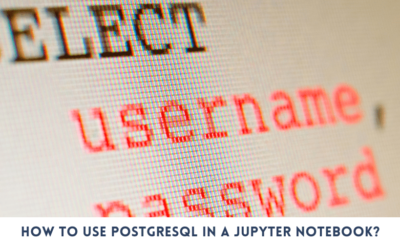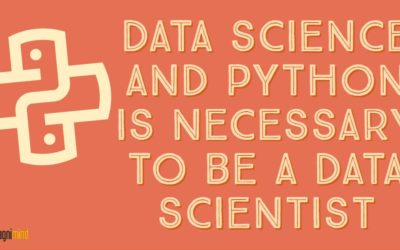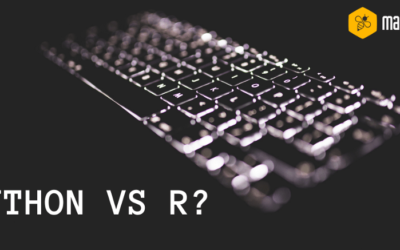In technical aspects, Python is a high-level, object-oriented programming language that comes with integrated dynamic semantics primarily for app and web development. Though it’s often compared to JavaScript, Ruby etc, the major thing that sets apart Python programming language from others is its simplicity. First released in 1991, Python has become one of the most popular programming languages across the globe. In this article you’ll learn the key features of Python programming language and the content of Python certificate programs.
Key features of Python programming language
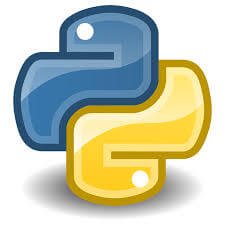
The huge popularity of Python programming language heavily relies on the unique features offered by it. Let’s have a look at the features of Python that set it apart from other programming languages.
Simple to learn
Python is highly simple to get started with. It comes with a simple setup, easy to understand syntax and many practical applications that are heavily needed in web development. The syntax is relatively simple compared to other languages and a bunch of modules can be imported to make the code much shorter. There’re some straightforward, excellent tools available to work with Python code, particularly the interactive interpreter. It eliminates the need for learning special text editor, IDE, or anything else to begin using Python programming language. All you need to have a command prompt together with the interactive editor.
A beginner`s language
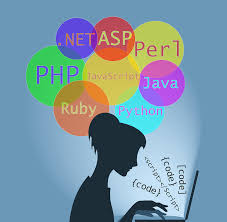
For a beginner in the programming domain, starting with a language which is difficult to learn not only slows the pace of the learning but brings additional complexity also. With Python programming language, a beginner can be introduced to the fundamental concepts like procedures and loops quickly and probably can work with user-defined objects in his/her initial stage of learning. Python’s hug syntactical simplicity lets a beginner use advanced or basic concepts, without much boilerplate code which is common in many other languages.
Interpreted Language
If you’re familiar with programming languages like Java or C++, you’re probably aware that in order to run them, you’ve to compile them first. But in Python programming language, there’s no need to compile it. All you need to do is run the Python code without thinking about linking to libraries. Here, interpreted means the source code isn’t executed all at once, instead it’s executed line by line, which makes it easier to debug the code. In Python, the source code gets converted into ‘bytecodes’ which is then translated into the native language of a specific computer.
Object-Oriented Language
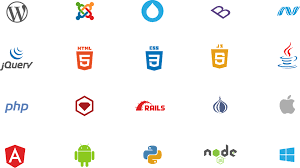
A programming language, which comes with the ability to model the real world, is considered object-oriented. It concentrates on objects and merges functions and data. Python has object-oriented features. Class mechanism of Python adds classes with a minimum number of new semantics and syntax. Here, multiple inheritances are also supported.
Free and Open-Source
Python programming language is freely available which means it can be downloaded from the official site by anyone. Python being open-source means you can read its source code, modify it, use pieces of it, and distribute copies of it freely.
High-Level Language
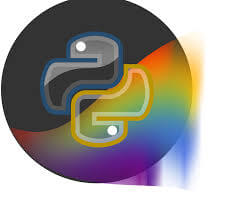
Python is a high-level language which means programmers don’t need to remember its system architecture or manage the memory. This feature makes Python highly programmer-friendly.
Portable Language
Let’s consider you’ve written code in Python programming language for a Mac machine and you want to run it on a Windows machine. There’s no need to make changes to perform it, meaning you can take a single code and run it on any other machine without having to write separate codes for separate machines. This portability is another key feature of this language.
Extensive Libraries

Python programming language comes with extensive libraries which can be used to eliminate the need of writing own code for each and every single thing. There’re libraries for unit-testing, documentation-generation, regular expressions, databases, web browser, image manipulation, image, and a lot more.
Extensible Language
Some of the Python code can be written in other languages such as C++ if required. This feature makes Python an extensible language which means you can extend it to other languages.
Why you should learn Python programming language?
We’ve already seen that Python programming language is surprisingly easy to learn and you can use it as your stepping stone into other frameworks and programming languages. Across the globe, Python is heavily used by some giant companies like Google, IBM, Nokia, Pinterest, Disney, Instagram, and many others. Since a lot of giant organizations depend on it, it’s extremely likely that you’ll never have a paucity of ways to earn good money using your Python skills. If you’re still feeling hesitant whether you should learn Python programming language, have a look at the following advantages that you’d be able to enjoy once you become a master of it.
Data Science
This is the biggest reason you should focus on learning Python programming now. Though R was considered perfect for data science tasks till sometime back, with lots of frameworks and libraries Python has become the most preferred language among data scientists across the globe these days. In addition, you can a lot more with Python than R. For instance, you can automate staff, create scripts, step into web development etc once you become a master in Python programming language.
Machine Learning

This is the second most important reason to learn Python now. The exponential growth of machine learning has attracted a huge number of businesses to leverage this technology. With algorithms becoming sophisticated day by day, we can expect to see more advanced and diverse implementations of machine learning in the technology domain. If you want to play around machine learning or do a pet project, Python is the only major language that makes it easy.
Web Development
With lots of good frameworks and libraries, Python programming language makes web development actually easy. For example, you can complete a task in minutes on Python, whereas it’ll take hours to be completed in PHP. There’s a huge number of web developers who’re using Python frameworks like Flask and Django to develop web applications in minimum time.
Massive Community

This is another key reason to start your programming career with Python programming language. Presence, as well as the size of the community, can act as a great differentiator when you’re learning something new. You can find the answer to almost any of your queries related to Python in minutes with the help of its communities.
Multipurpose
Another key factor behind the huge popularity of Python is its multipurpose nature which means it’s not tied to only a single thing. For example, R is good on machine learning and data science but fails to add any value when it comes to web development. By learning Python programming language you’ll be able to do a lot of things: from doing data analysis to creating web applications to automating tasks to writing scripts.
It pays well

When it comes to salary, Python professionals belong to some of the highest paid groups in the industry, especially those working in the machine learning, data science, and web development domains. While tech salaries greatly differ from one region to another, they stay in a very good range, anywhere between 70K and 150K based on the domain, location, and experience.
High Demand
Based on popular job portals, it looks like having a Python programming certification under your belt can greatly help you get a decent job within a short time. In addition, the demand has increased exponentially these days because of the widespread implementation of data science and machine learning.
Things to know about the content of Python certificate

Having a Python certification gives you a competitive advantage when you appear in front of the hiring managers. While competitions in the technology domain are rigorous, having such a certification can change the scenario completely for you. A Python programming certification demonstrates that you not only have a robust understanding of the language but are determined to improve your skillset as well. In addition, having a certification greatly helps you move up the corporate ladder quickly. Lastly, by obtaining a Python programming certification you’ll be able to earn significantly more than those who don’t. If you’re interested to know about what you’ll learn by completing a Python certification course, here’s an overview of the content of Python certificate programs.
- Introduction to and importance of Python
- Introduction to Python programming language semantics, syntax, runtime environment etc
- Understanding operations, functions, class defining etc
- Understanding Hadoop deployment
- Understanding machine learning algorithms in the context of Python
- Working on real-life projects running on Python
Python programming certification course can be taken by Project Managers and BI Managers, Software Developers, Big Data Professionals, Analytics Professionals, and anyone interested to build a career in Python. Beginners without any previous programming experience can also take up a Python certification course to step into the technology field quickly.
Conclusion
However, it’s extremely important to complete your Python programming certification course from a reputed institute. Things you need to review meticulously include the content of Python certificate program, whether the course is designed by industry professionals, facility to receive hands-on experience, job assistance after successful completion of the program, among others.

